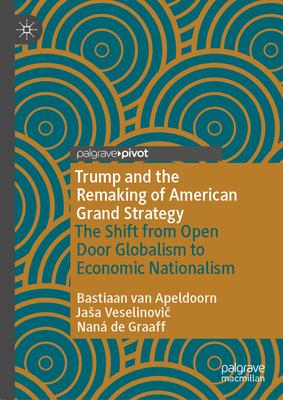This book offers a comprehensive explanatory account of Trump's foreign policy by assessing its nature, determining the extent to which it broke with the policy of preceding presidencies, and explaining how this shift came about. We argue that Trump has succeeded in remaking America's grand strategy by unmaking its long-standing strategy of what we call Open Door Globalism, a strategy of economic expansionism through the promotion of open markets across the globe and its institutionalization into a US-led liberal world order. Trump has broken with Open Door Globalism in probably lasting ways by adopting an outlook and strategy of neo-mercantilist economic nationalism based upon an 'America First' redefinition of US sovereignty and national interests. We explain this Trumpian shift in US foreign policy by focusing on the social sources of Trump's foreign policy-making elite's agency, analysing it both in terms of foreign policy-makers' embeddedness in elite networks and within the changing global and domestic context. The latter, coupled with a crisis of established elite power, also indicates why Biden has not returned to Open Door Globalism but doubled down on some aspects of the Trumpian economic nationalist break.

Trump and the Remaking of American Grand Strategy: The Shift from Open Door Globalism to Economic Nationalism
This book offers a comprehensive explanatory account of Trump's foreign policy by assessing its nature, determining the extent to which it broke with the policy of preceding presidencies, and explaining how this shift came about. We argue that Trump has succeeded in remaking America's grand strategy by unmaking its long-standing strategy of what we call Open Door Globalism, a strategy of economic expansionism through the promotion of open markets across the globe and its institutionalization into a US-led liberal world order. Trump has broken with Open Door Globalism in probably lasting ways by adopting an outlook and strategy of neo-mercantilist economic nationalism based upon an 'America First' redefinition of US sovereignty and national interests. We explain this Trumpian shift in US foreign policy by focusing on the social sources of Trump's foreign policy-making elite's agency, analysing it both in terms of foreign policy-makers' embeddedness in elite networks and within the changing global and domestic context. The latter, coupled with a crisis of established elite power, also indicates why Biden has not returned to Open Door Globalism but doubled down on some aspects of the Trumpian economic nationalist break.